
Minerals and Cultured Foods: The Foundation of Good Health
Minerals
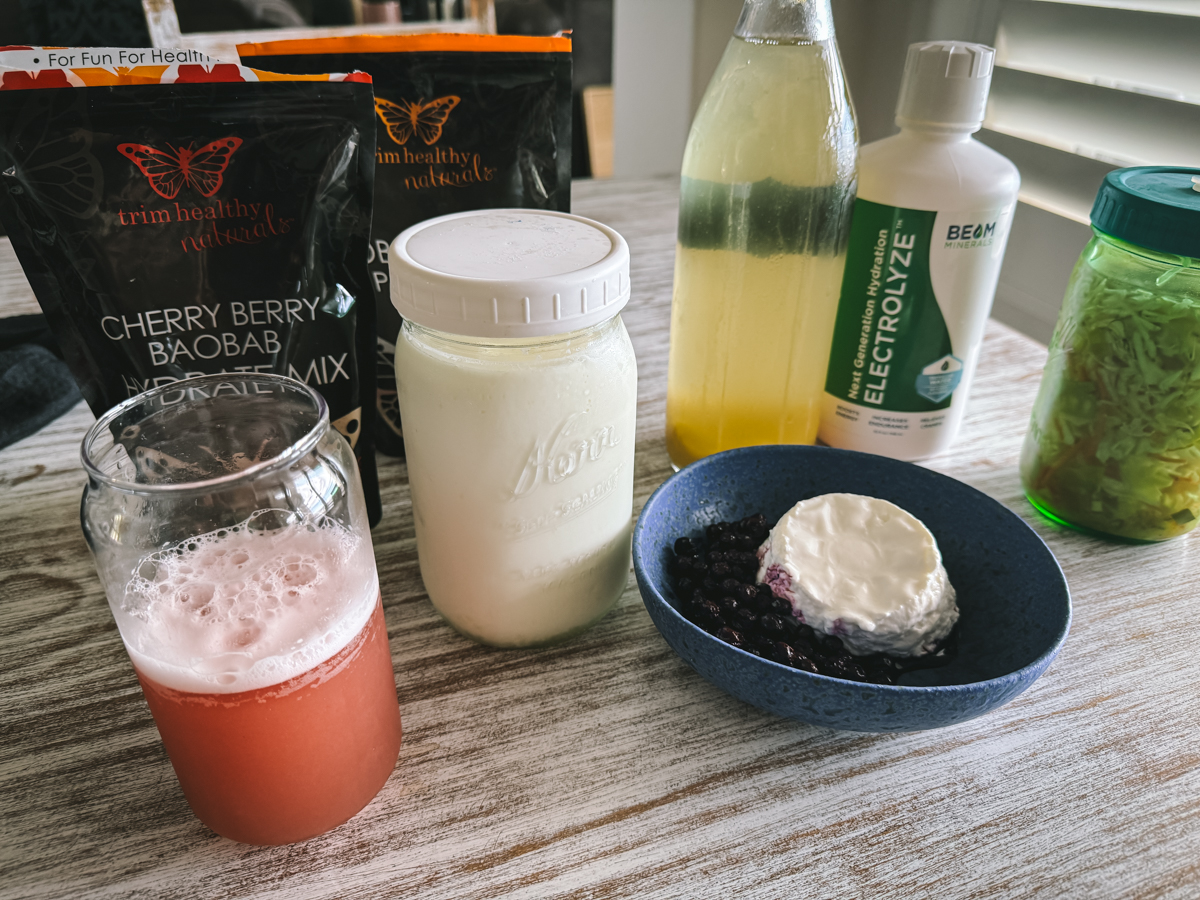 Many people ask me about what the most important components of vibrant health are, and I often share one simple truth: our bodies thrive when we give them what they’re made of. And minerals are at the very heart of that. Every single cell in your body depends on minerals to function. They are the spark plugs of life—helping your heart beat, your muscles contract, your brain send signals, and your digestive system do its incredible work.
Many people ask me about what the most important components of vibrant health are, and I often share one simple truth: our bodies thrive when we give them what they’re made of. And minerals are at the very heart of that. Every single cell in your body depends on minerals to function. They are the spark plugs of life—helping your heart beat, your muscles contract, your brain send signals, and your digestive system do its incredible work.
But here’s the problem: our modern diets (and even our soils) are often depleted of these essential minerals. Stress, processed foods, and poor digestion can leave us running on empty. So what is the solution? Cultured foods are loaded with minerals which is why I recommend not using distilled water that lacks minerals while fermenting foods. Sometimes we need even more minerals than we can get in our food, and my husband is a good example.
How Minerals Helped My Husband’s Sciatica Heal
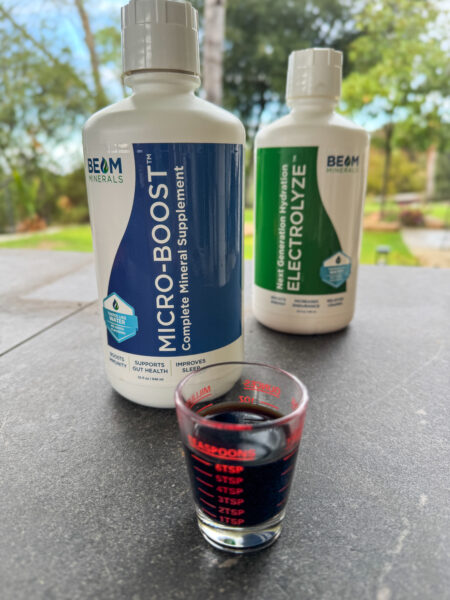
One massage therapist mentioned that the issue was likely nerve-related, and that got me thinking. If nerves are at the core of the problem, then maybe what he really needed was more minerals. I’ve always loved minerals, and whenever I take them consistently, I notice I absorb nutrients better, I’m less hungry, and I feel a sense of calm that I really enjoy.
That’s when I decided to have him try them, too. After all, minerals support every nerve function (and about a million other things), so it certainly couldn’t hurt. The best minerals I’ve found are from Beam Minerals. I even bought a little shot glass and told him to pour about an ounce each day. You can mix them in water or take them straight—they don’t really taste like anything, which makes it easy.
After just a week or two, I noticed something amazing: he wasn’t complaining anymore and could actually sit comfortably instead of always having to stand. A few weeks later, he announced that the pain was completely gone. Now he’s a believer!
Once he stopped taking them for a week, the pain started creeping back—so he quickly went back on them and found relief again. My husband is very active—always building, working outside, and doing heavy land work. Because he sweats a lot, I think he loses minerals faster than he realizes and needs to replenish them regularly. Beam Minerals
The Mineral That Saved My Life
I am a big believer in minerals, and for me, magnesium is one I am constantly aware that I need more of. I wrote a whole article about The Mineral That Saved My Life and how essential it is for me to ensure I get enough magnesium. I take mineral-rich baths regularly, use topical magnesium, and also take Beam Minerals. I can't say enough about how much we all need minerals, especially as we get older. I even noticed that minerals can help with digestion - especially indigestion. I've given minerals to many people to help with this, and they work so well and are so much better for you than antacids. We all need minerals more than we realize—and when we give our bodies what they’re missing, the results can be life-changing. Magnesium Products
Why Minerals Matter
(When my husband started taking minerals, I did a lot of reseach. What surprised me was realizing how many other parts of our health depend on minerals too. They’re involved in just about everything your body does, often working quietly in the background. Here are some of the ways minerals can enhance your health:
- Stronger bones and teeth – Calcium, magnesium, and phosphorus keep your structure strong and stable.
- Steadier energy – Minerals like magnesium and iron help your body make ATP (your cellular energy). Low minerals can leave you dragging.
- Better sleep and calm – Magnesium especially supports relaxation, helps with melatonin production, and reduces stress.
- Improved digestion – Zinc and other trace minerals support stomach acid and enzymes so you absorb nutrients better.
- A resilient immune system – Zinc, selenium, and magnesium all play a role in lowering inflammation and keeping immunity strong.
- Heart and blood pressure support – Potassium and magnesium help your heart beat steadily and keep blood pressure balanced.
- Healthy skin, hair, and nails – Silica, sulfur, and zinc support collagen and keratin production.
- Balanced blood sugar and fewer cravings – Minerals like chromium and magnesium help insulin work properly.
- Natural detox support – Fulvic and humic minerals (like those in Beam Minerals) bind to toxins and support cellular repair.
- Better hydration and muscle function – Electrolyte minerals like sodium, potassium, magnesium, and calcium keep your muscles and nerves firing smoothly.
When you think about it, minerals are like the little spark plugs of life—they make everything else work better. That’s why I love pairing mineral-rich cultured foods with a daily dose of Beam Minerals. It’s simple, effective, and helps your body do the amazing work it was designed to do.
How Cultured Foods Help
Cultured foods—like kefir, yogurt, sauerkraut, kimchi, and kombucha—are more than probiotic powerhouses. They also help us absorb minerals better. Here’s how:
-
Fermentation unlocks nutrients
During fermentation, friendly microbes break down phytic acid and other compounds in food that can block mineral absorption. This means more magnesium, calcium, and iron are available to your body. -
A healthy gut = better mineral absorption
The beneficial bacteria in cultured foods strengthen your gut lining, reduce inflammation, and help your intestines pull more minerals from the food you eat. -
Trace minerals in fermented foods
Many cultured foods naturally contain minerals. For instance, kefir and yogurt provide calcium and magnesium. Fermented vegetables carry potassium, and kombucha brewed with mineral-rich teas can add to your intake.
Easy Ways to Boost Minerals with Cultured Foods
-
Add a scoop of kefir to your morning smoothie for calcium and magnesium.
-
Enjoy a few forkfuls of sauerkraut with dinner to help unlock iron and zinc from the rest of your meal. Add minerals to your vegetables before you ferment them. (See below)
-
Sip kombucha in the afternoon for a refreshing, mineral-rich boost.
-
Try yogurt topped with fruit and nuts for a nourishing, mineral-packed snack.
Why Add Minerals to Fermented Vegetables?
I like to add a small amount of Beam Minerals to a jar of cultured veggies to enhance absorption. See recipe below.
Boosts nutrition: Trace minerals (like magnesium, potassium, and zinc) fortify the vegetables and enrich your gut flora.
Improves fermentation: Minerals help microbes thrive and multiply, giving you a more robust, bubbly, and tangy ferment.
Better flavor & crunch: Mineral salts (like Celtic Sea Salt or Himalayan pink salt) add subtle flavors and help keep veggies crisp.
Supports gut absorption: Pairing fermented veggies with something like Beam Minerals (fulvic and humic minerals) may improve how your body actually absorbs the nutrients.
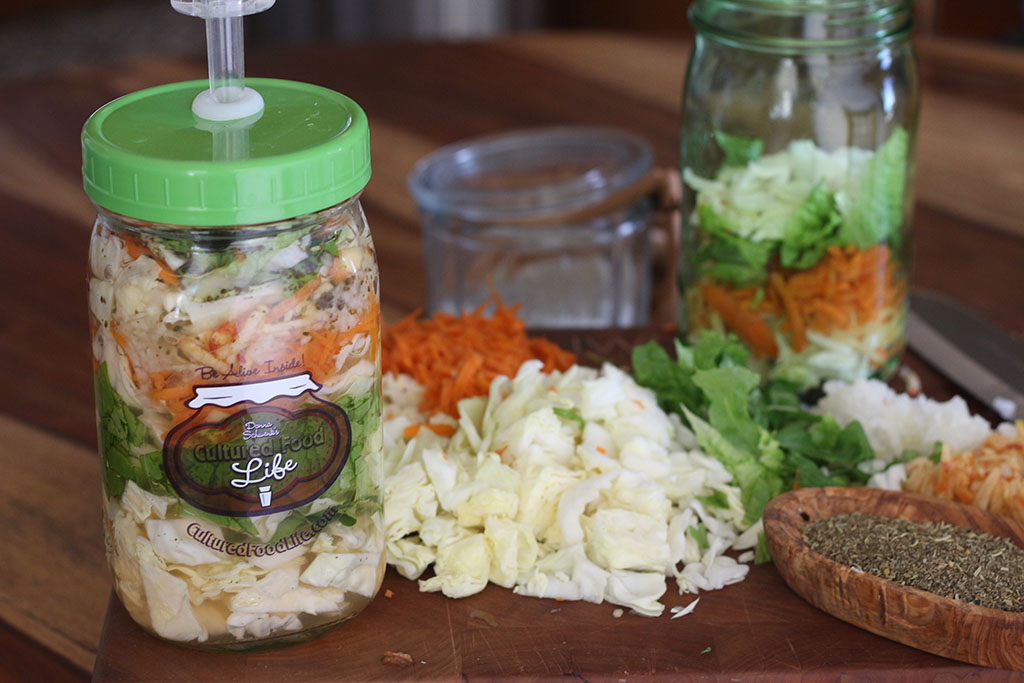
Mineral-Rich Teas for Kombucha
Kombucha microbes thrive on trace minerals. Choosing the right tea can give you a healthier, fizzier, and more nutrient-dense ferment.
1. Black Tea
- One of the best for kombucha fermentation.
- Rich in manganese, potassium, and fluoride which help strengthen bones and teeth.
- Provides robust flavor and plenty of nutrients for the SCOBY.
2. Green Tea
- High in magnesium, potassium, calcium, and manganese.
- Also rich in antioxidants (catechins) which add to kombucha’s health benefits.
- Makes a lighter, more delicate kombucha.
3. Oolong Tea
- Semi-fermented, sits between black and green tea.
- Contains manganese, magnesium, potassium, and calcium.
- Adds floral, fruity notes to kombucha while still feeding the SCOBY well.
💡 Did You Know?
Tea naturally contains fluoride because the plant absorbs it from the soil. In small amounts, fluoride can actually be helpful, supporting strong teeth and bones. The concern only comes with very high intakes from other sources in extremely large daily amounts.
Balancing effect: Fermented foods provide other minerals (like magnesium and calcium) that compete with fluoride for absorption, helping the body use what it needs and excrete the rest.
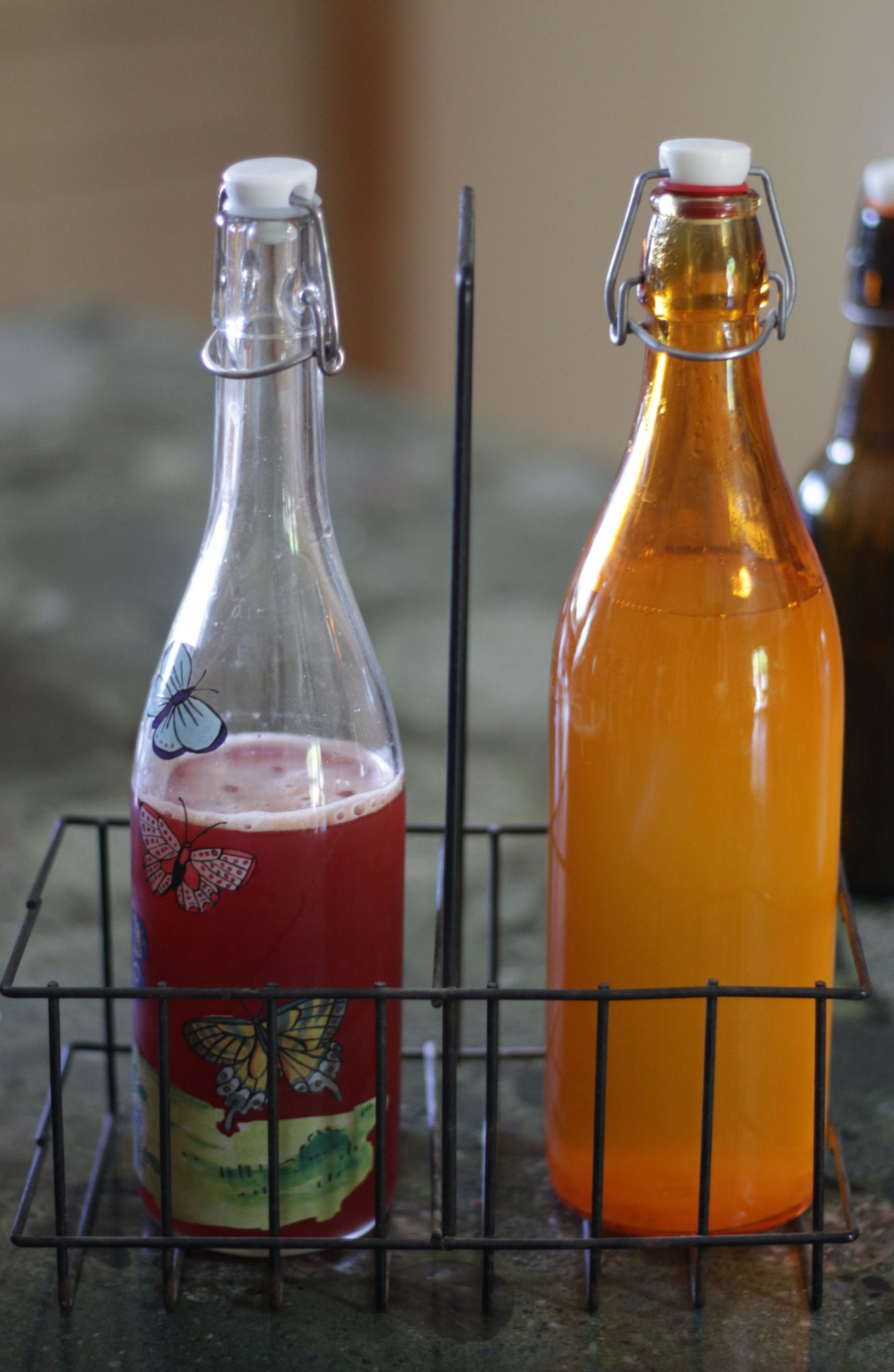
Key Minerals in Kefir (per 1 cup)
🥣 Mineral Content by Yogurt Type Per Cup
Bringing It All Together 🌿
Minerals are the building blocks of life, and cultured foods are the key to helping your body actually use them. When you combine the two, you give yourself the gift of true nourishment—fueling your body with exactly what it needs to thrive.
So, next time you enjoy that bubbly kefir soda, tangy kraut, or creamy yogurt, remember— you’re not just feeding your gut, you’re helping your whole body soak up the minerals that keep you alive and well.
Add some extra minerals to your daily routine, or add them to your cultured vegetables, or get some Beam Minerals, they can make all the difference!
Baobab for Extra Minerals and Vitamins
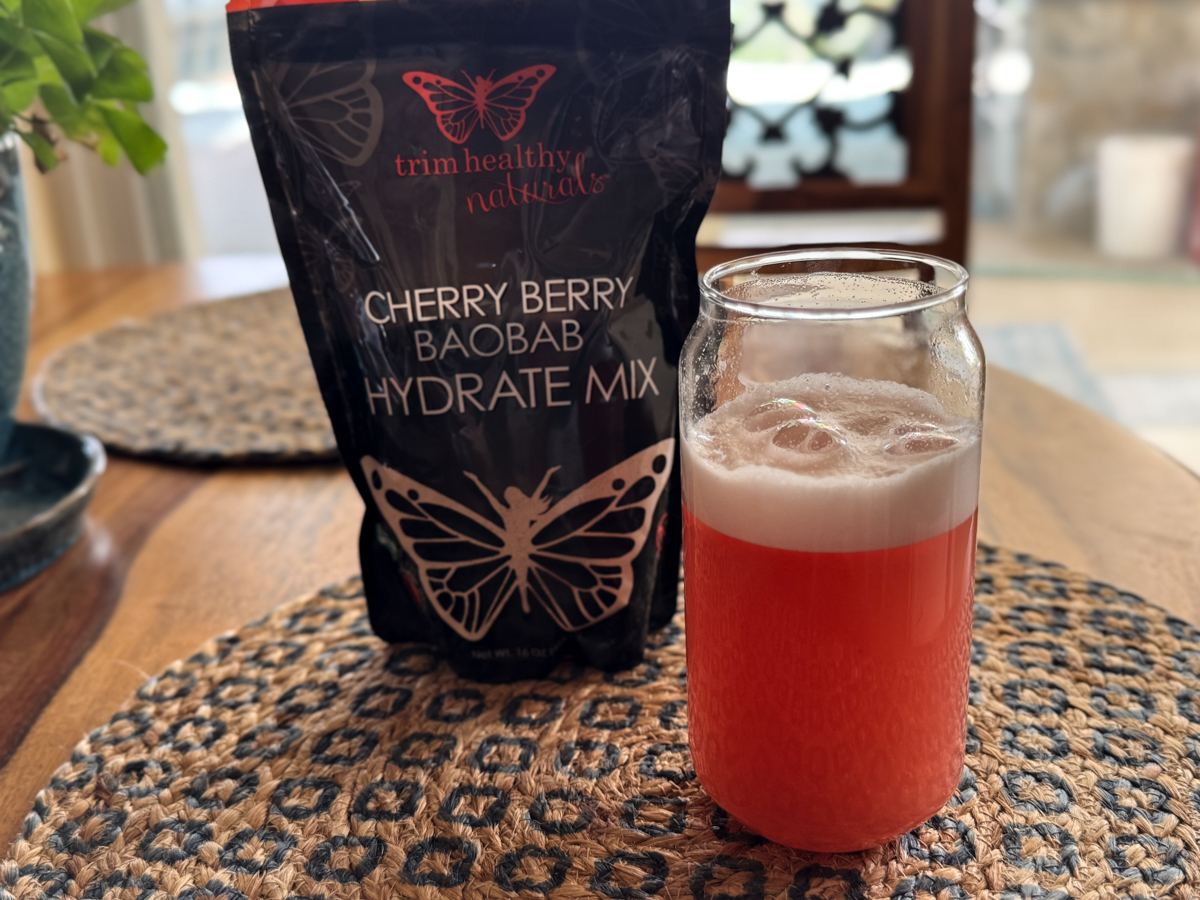
Why Baobab Stands Out
- High potassium: Baobab has more potassium than bananas — great for hydration and electrolyte balance.
- Good calcium source: Especially useful for those who don’t consume much dairy.
- Synergy with fiber: Baobab is ~50% fiber, which feeds gut bacteria and helps improve mineral absorption.
- Calcium: ~20–25 mg
- Magnesium: ~10–12 mg
- Potassium: ~140–175 mg
- Iron: ~0.2–0.3 mg
✨ In short: Baobab is one of the richest plant-based sources of potassium, calcium, and magnesium, making it fantastic for energy, hydration, bone health, and digestion. I can't say enough about it!
Listen To My Podcast
Discover why minerals are the unsung heroes of good health. From boosting energy and calming nerves to supporting immunity and digestion, minerals do it all. I’ll share how my husband found relief from years of sciatic pain with the help of minerals, and how pairing them with cultured foods can transform your health too.
References I talked about:
References:
- https://www.semanticscholar.org/paper/%5BThe-effect-of-kefir-consumption-on-human-immune-a-Adilo%C4%9Flu-G%C3%B6n%C3%BClate%C5%9F/393615b1926d6a4df1f98fa32be52ed8acb55546?
- https://www.researchgate.net/publication/324045969_Lactic_Acid_Bacteria_from_Kefir_Increase_Cytotoxicity_of_Natural_Killer_Cells_to_Tumor_Cells
- https://www.researchgate.net/publication/393198465_Antioxidant_Effects_of_Bioactive_Components_of_Kefir
- https://www.culturedfoodlife.com/kefir-and-respiratory-health/
Are you on the list?
Sign up today and I'll send you my free Getting Started Guide!
Each week I'll send you updates, tips, recipes, and more! You might even be a winner of my weekly giveaway! (starter cultures, memberships, and more!)
Come be a part of my cultured food family!

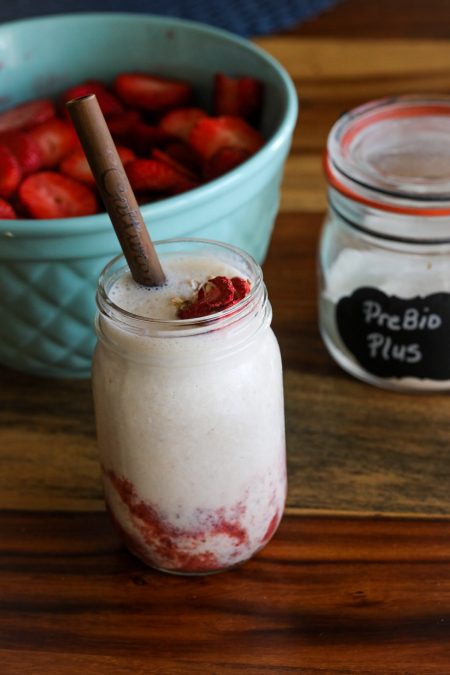 🌟 Minerals
🌟 Minerals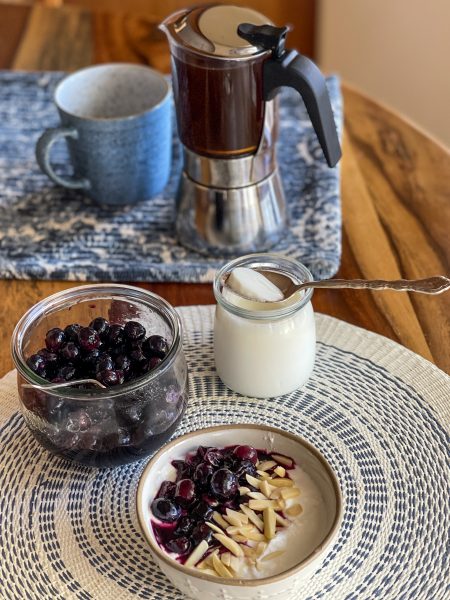 Skyr (Icelandic Yogurt)
Skyr (Icelandic Yogurt)
